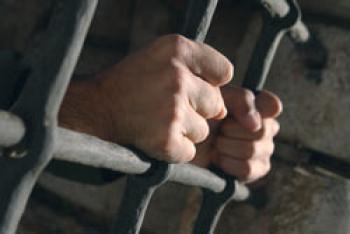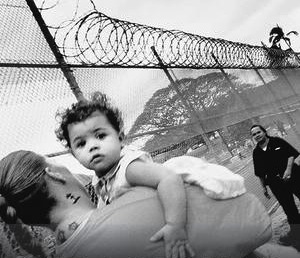Serendip is an independent site partnering with faculty at multiple colleges and universities around the world. Happy exploring!
sara.gladwin's blog

MC Thomas is Haunting me.
To stay or not to stay? I’ve been thinking a lot about where I want to sit to observe. This past weekend, when I was reading about Bryn Mawr from a book by Helen Horowitz, I was really struck by a chapter she had about tradition and the campus, where she talked about the way women related to their physical campus because of the traditions they had in different spaces on that campus. The more I thought about it, I liked the idea of doing a series of posts about a couple different physical places on campus outside that related either to my collective or individual memories of traditions at Bryn Mawr. I wanted to see how traditions and memory made a difference in the place you observe. For this particular post, I chose the cloisters.

Ecolit Paper: Attending to the Past in Order to Face the Present
Do we really know our ecological past? Do we really understand our present? These questions seem to be intertwined in significant ways; our construction of the past also lends itself to the construction of the present. Is part of the key then to facing current dilemmas confronting the history of the land? I decided to explore some of these more ecological questions by reassessing my own interactions with the environment I live today- Bryn Mawr College. I was interested in finding out whether knowing more about the history of a particular space changed how I interacted with it in the future. In particular, I was interested in the history of maids who lived in the dorms and served the undergraduate students. However as I searched for information, my interest broadened to include Bryn Mawr’s entire racial history, especially the history of Perry House, one of dorms on campus that is important both as a space for a multicultural community and as a piece of Bryn Mawr’s racial history.

3rd ENG webevent: exploring conventional storytelling and interpretation
“In many ways, literary conventions, as well as the conventions of literacy, militate against an understanding of traditional tribal materials. Western technological-industrialized minds cannot adequately interpret tribal materials because they are generally trained to perceive their entire world in ways that are alien to tribal understandings” (Allen 31). This quote is from a reading from another class outside the 360 but I could not help but feel it captured some of my difficultly in reading “I, Rigoberta Menchu.” Paula Gunn Allen (who I extracted the above quote from) wrote an essay asserting that the way white colonial understanding and retelling of Indigenous people’s culture and stories distorts their reality. Allen specifically believes that one of the most important aspects of this distortion is through the particular “plotting” of a retelling. In the English language, we are taught that a story should follow a predictable and linear trajectory. First there is the introduction of characters and a “reader-capturing” conflict that those characters will have to continually work towards absolving. The characters then go through a series of experiences that shape their identity and lead into the final climax of the story; the pivotal moment in which the characters are forced to reconcile with their conflict in an explosive way. After the climax the story winds downward into a satisfying, neat conclusion in which the reader can ultimately extract from a piece of meaning or theme that ties each event together.

prison imagery
I know this is a late post about a voice visualization but I wanted to post regardless.


activism confusion.
I struggled a lot in answering the activism question, which is why I ended up commenting more on other people’s ideas rather then putting any new ideas out. I think they are some really creative ideas here that I would definitely like to be a part of. My struggle to think about activism is also why this is a separate post… I do not feel like I answered the question and that some of the things I ended up writing were less relevant to question but still felt very relevant to the class in general and I wanted to share.

Where are the Children?

I couldn't help but feel the cover of the book Offending Women was most relevant to my paper; the face of the child who has been incarcerated alongside his mother. In my memo, I focused on the way in which the needs and voices of the children and family of those who are incarcerated are impacted and overshadowed by their relation to a person who has been imprisoned. I look at some of the ways in which they too have become incriminated into the same system

weather and feelings?
“I don't know. Poets are always taking the weather so personally. They're always sticking their emotions in things that have no emotions” – Holden Caulfield from Catcher in the Rye
I brought a lot of guilt into my space today. I felt guilty for not having yet finished writing an essay due today, guilty for feeling behind. I felt guilty for having to set aside time to sit when I hadn’t finished all my other work; for not managing my time well enough to give all my work the equal attention it deserved. Everything seemed to serve as a reminder of this guilt; the breeze that made my attempts at keeping my papers together futile, the people who stopped to talk to me reminded me of the distractions I allowed to take precedence in my life. I began to really think about the way we impose emotions in a space. I thought about the way I perceived the weather almost as a malicious bully, working against me. While I doubt the weather itself had very little mal-intent toward me… I resented it, and the almost playful way the wind would pick up my homework and scatter it across the grass, as if to tease my attempts at being a good student. What on earth are you studying for? I imagined the bully to say, giving some of my index cards a hefty toss away from me, and laughing as I scrambled to catch my precious study cards.

needs?
The section of Offending Women made me really angry. I had been angered before at some of the problematic aspects of both the programs that the author was assessing but this chapter struck me as particularly problematic. Many of the practices that were to get women to “open up” seemed almost like some kind of psychological torture, forcing the inmates into hysteria without any real way to build them back up. I was disturbed by the way in which the social aspects of their traumas/stories were ignored to draw focus on the ways in which their “addictive” personalities led to them being imprisoned… It seemed almost violent to the minds and hearts of these women to force them to relive their stories and then place the blame entirely on them for their situation. I was also really angry when Haney was describing the search through the women’s belongings. There was a complete lack of boundaries and privacy, both of which I think people are entitled to. Especially when they went through the women’s things and threw out what the institution had decided were not “necessities.” One of the women had saved up shampoos and toiletries for when she leaves; probably knowing full well what its like not to have money and no access to those things. The staff member cleaning out her room laughed. She laughed, without even bothering to address why that inmate would’ve felt that she needed to stock up on toiletries in the first place.

The Rain
It took me three tries to get to my spot today. I sat in the Pembroke arch, watching the rain, waiting for it to let up. Every time I would think the rain had stopped, I would venture tentatively out, hand first and body second. It wasn’t raining heavily, but I had intended to draw. I was determined to find the exact moment in which the rain would pause, allowing me to carry through with my plan. I wanted to defy the rain.
Finally, after at least fifteen minutes, I realized there was no way I was going to win against the rain. I sat dejectedly on a plastic bag in my spot, feeling rather lost. What now? Is this where the narrative of “man vs nature” emerges? We make plans, but ultimately the rain is a reminder of how little can go according to that plan.

This American Life podcast
Hi everyone- this is the link to the This American Life podcast I was talking about earlier in Voice class about the law passed in Alabama: http://www.thisamericanlife.org/radio-archives/episode/456/reap-what-you-sow
I also found another one that looked interesting while looking through the archives: http://www.thisamericanlife.org/radio-archives/episode/414/right-to-remain-silent
I haven't fully listened yet but sounds like it might be relevant to our silence class!


